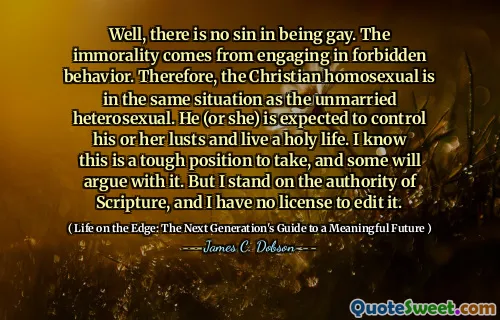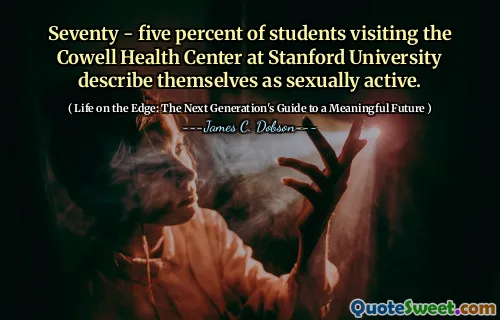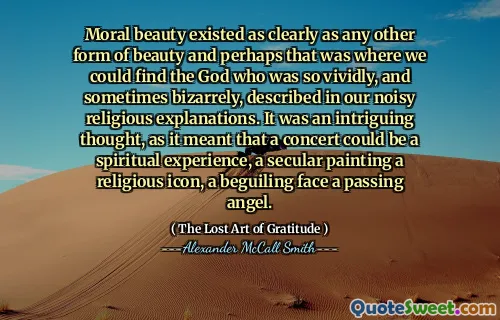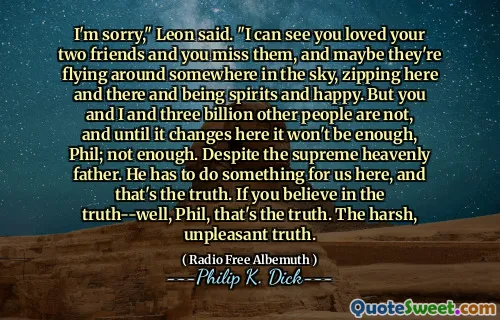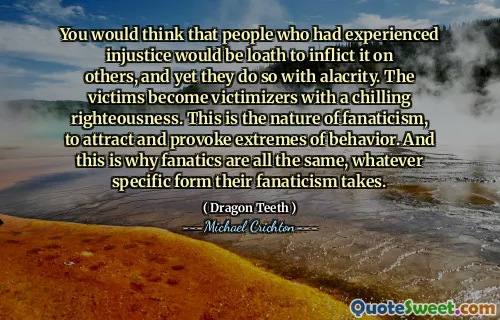
Well, there is no sin in being gay. The immorality comes from engaging in forbidden behavior. Therefore, the Christian homosexual is in the same situation as the unmarried heterosexual. He (or she) is expected to control his or her lusts and live a holy life. I know this is a tough position to take, and some will argue with it. But I stand on the authority of Scripture, and I have no license to edit it.
[Markdown format] The quote presents a perspective rooted in a particular interpretation of Christian doctrine, emphasizing that the innate orientation of a person is not sinful in itself. Instead, the moral issue arises from actions deemed sinful, such as engaging in certain sexual behaviors. This stance seeks to distinguish between inherent characteristics and behavioral choices. While this perspective appeals to a strict adherence to Scripture, it inevitably raises complex questions about how faith communities handle issues of sexuality, acceptance, and morality.
The viewpoint advocates for compassion towards individuals with different sexual orientations, asserting that their orientation is not what makes them morally culpable, but rather their conduct. It underscores a call for self-control and living a holy life, aligning with traditional Christian teachings on morality.
However, this interpretation can be both reassuring and challenging. It reassures those who believe that inherent personhood should not be condemned, fostering a message of dignity and acceptance of LGBTQ+ individuals within a religious context. Conversely, it can challenge broader societal conversations surrounding LGBTQ+ rights, acceptance, and the evolving understanding of sexuality and morality.
This quote exemplifies the ongoing debate within faith communities about how to reconcile adherence to scripture with contemporary values of inclusion and human rights. It highlights the importance of nuanced dialogue informed by theological reflection, compassion, and respect for individual dignity.
Ultimately, such perspectives invite us to reflect deeply on how religious teachings can promote love, acceptance, and moral integrity in a diverse and changing world, urging believers to confront their beliefs with compassion while standing firm on their faith principles.
